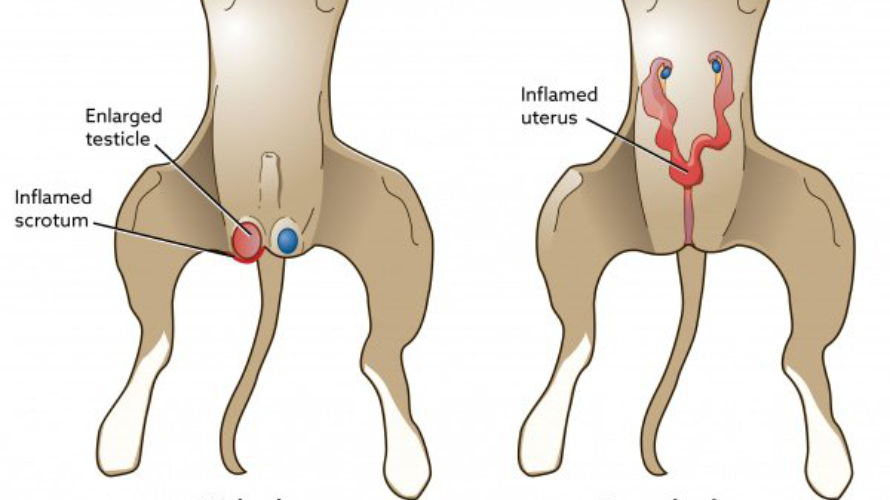
Sexually Transmitted Diseases in dogs, is a term seldomnly heard by Pet parents. When we spoke to Dr. Harendra Rajput about this topic at length, we were surprised how quickly our pets can pick up these diseases. This is a must read for all pet parents and dog lovers!
Since the last two years, I’ve been practicing my profession diligently from my clinic ‘PetnVets’ back in Indore. My client list is vast and ranges from dogs, cats and exotic birds. In the recent few years, I have observed a big shift in the way pet parents have been conscious as well as cautious of the choices they are making regarding their pets. This awareness brought in the society is very welcomed and encouraged by all the veterinary practitioners across the country.
I was asked by the Pawzeeble team to share with their readers a recent experience of mine in order to educate pet parents about the diseases which have been on the rise lately. Hence, I want to take this opportunity to introduce you all to the topic of ‘Canine STD’. I typically get to see at least 10 patients monthly who face this particular problem and therefore am well versed with such cases. I will not go in depth into the technical medical angle of it, but I would like to explain it to you in layman terms.
So typically Canine STDs are of 3 types:
- Canine Herpes Virus - This virus belongs to the same family of herpes virus that humans contract. It can be treated with proper medical treatment in adult dogs, but may prove fatal to new-born puppies. The transmission of the virus takes place through mating, drinking from a contaminated water source, or close contact to an infected dog. It transmits through both, direct physical contact and airborne way. This virus can be passed to puppies by their mothers too.
Common Symptoms - Coughing, sneezing in adult dogs, greyish and yellow stools for puppies, bumps around the genital area.
Treatment - Symptomatic treatment.
- Brucellosis - This is a bacterial infection which causes fertility issues in dogs and infection of the reproductive system. This infection is highly dangerous for puppies. It spreads through mating or contact with infected bodily fluids. Brucellosis is very difficult to treat successfully and may include long term antibiotics.
Common Symptoms - Lethargy, swollen testicles, inflammation of the skin around the scrotum, vaginal discharge, difficulty in walking.
Treatment - The treatment again is symptomatic, however, pet parents need to be cautious with this one as it is very rare in canines.
- Canine Transmissible Venereal Tumors - This STD is also termed as CTVTs and is one of the only transmissible cancers in mammals. Mating causes the transfer of this disease. It can also spread through licking, biting or sniffing.
CTVT causes tumors which are usually associated with the external genitalia of both male and female dogs.
Common Symptoms - These are cauliflower like tumors around the genital areas, which range from 5 mm to > 10 cm.
Treatment - This benign tumor can be treated with anti-cancer drug therapy. Most dogs respond well to the chemotherapy treatment and make a full recovery from the treatment.
Panic Meter - Low in adults.
How to avoid - Don’t let your adult dogs near strays and do check the puppy you are adopting from a veterinarian thoroughly. Before mating, please have both, the male and the female dogs tested for these STDs for precautionary purposes.
Sometimes pet parents underplay the sexual overtone in their pets. Most of the time it is difficult for the pet parent to find a suitable mating partner for their canine friends. Thus, allowing them to mate with strays, which is a very common practice. This unsupervised mating is the cause of such sexually transmitted diseases.
There’s no harm in spaying your pets. It makes them less aroused to their environment and is a healthy option. No doubt, it makes the pet parents' lives easier too! So, let’s educate ourselves and make the right choices for our fur-babies.
